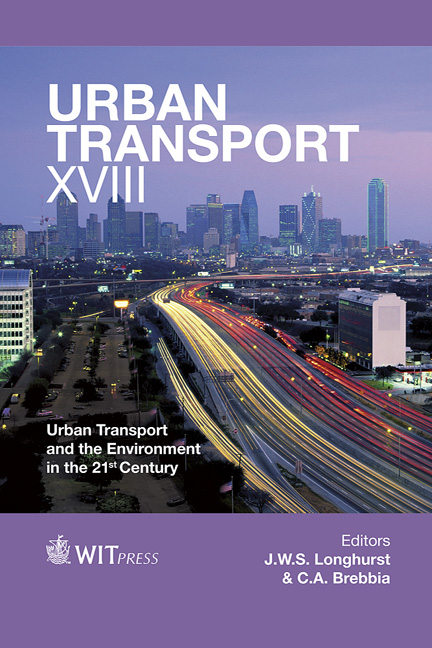Environmental Assessment Of Different Vehicle Technologies And Fuels
Price
Free (open access)
Transaction
Volume
128
Pages
12
Page Range
15 - 26
Published
2012
Size
547 kb
Paper DOI
10.2495/UT120021
Copyright
WIT Press
Author(s)
F. Boureima, M. Messagie, N. Sergeant, J. Matheys, J. Van Mierlo, M. De Vos, B. De Caevel, L. Turcksin & C. Macharis
Abstract
In this paper, a comparative LCA of conventional and alternative vehicles is performed. Thanks to a modeling approach combining LCA methodology, vehicle homologation data and statistical tools, all the available vehicle types in a given fleet are included in a single LCA model. Statistical distributions are used to include the variations of the main parameters (weight, fuel consumption and emissions) of all the considered vehicles in the LCA model. When dealing with greenhouse effect, battery electric vehicles (BEV) powered with the Belgian electricity supply mix, have a lower greenhouse effect (18.6 ton CO2eq/lifetime) than all the comparable vehicle technologies with exception of the sugar cane based bio-ethanol E85 vehicle (8.47 ton CO2eq/lifetime). For the different impact categories considered in this study, the impacts of the LPG technology are comparable to diesel. Euro 4 LPG and Euro 4 diesel have respectively greenhouse effects of 53.2 ton CO2eq/lifetime and 49.4 ton CO2eq/lifetime. FCEVs have lower impact than petrol and diesel vehicles for greenhouse effect, respiratory effect and acidification. CNG vehicles appear to be an interesting alternative for conventional vehicles. They have a low greenhouse effect (34.7 ton CO2eq/lifetime for a Euro 5 CNG) and the best score for respiratory effects and acidification. Furthermore Euro 4 CNG and Euro 4 HEV have comparable greenhouse effects (respectively 44.9 ton CO2eq/lifetime and 46.4 ton CO2eq/lifetime). Thanks to an iterative calculation process and the use of range of values instead average values, the variation of all the LCA results is assessed without performing a new LCA model. This approach provides the
Keywords
range-based LCA, fuel/technology, segment, alternative vehicle





